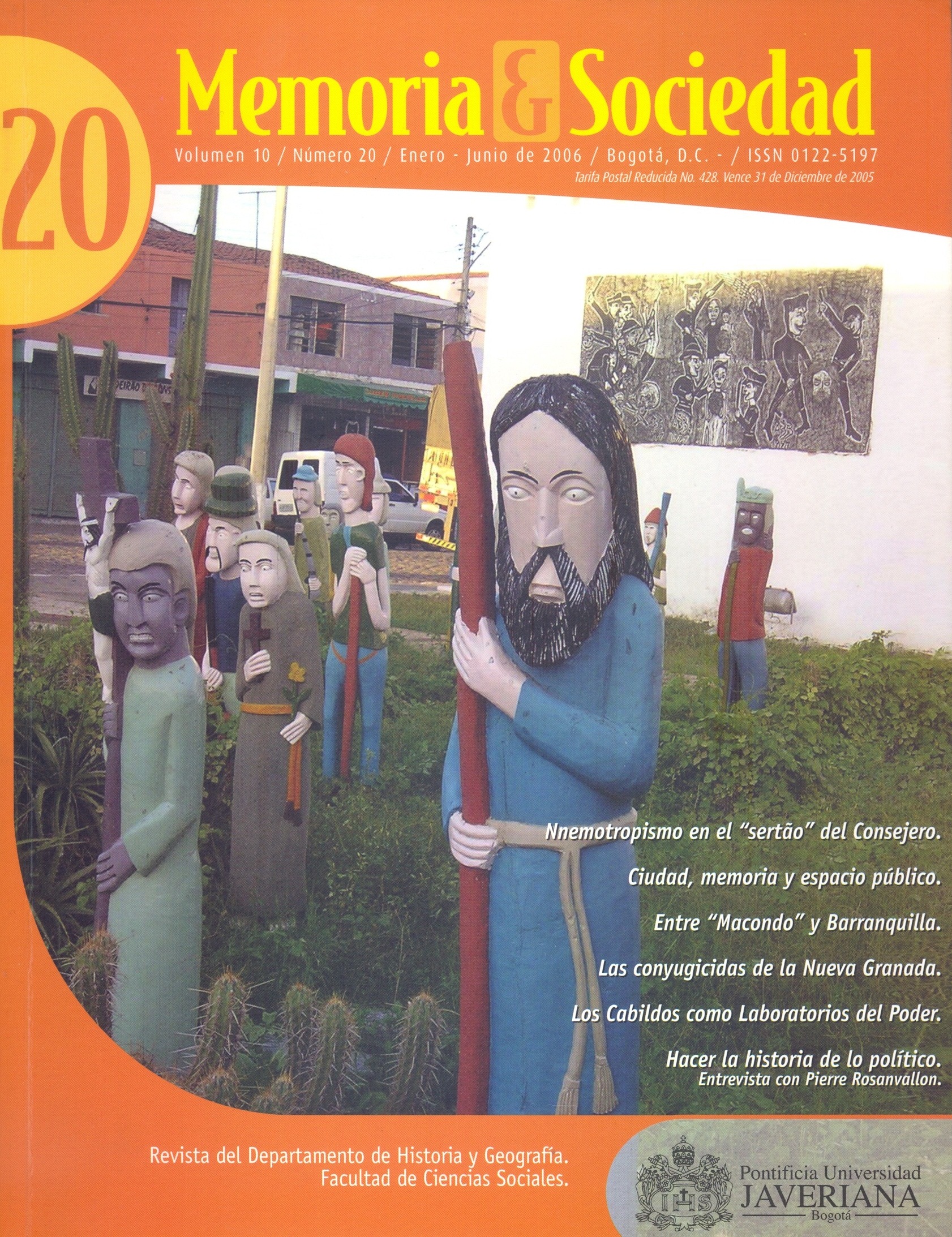Abstract
This Work study the transformations of the political attitudes of the town council form the cities of Cali and Popayan which during the years at the beginning of the Independence assumed the defense of the king, the religion and the country, and afterwards in a period of three years- 1808 to 1811- started to modify their inclinations, defining their selves as patriots, totally autonomists. In contrast the City of Pasto, was attached to their fidelity traditions to the colonial pact, respectful to their ancestors honor, was a religion guardian and kept, during all the period, its royal position, being exalted by the supreme colonial authorities, which led to deep their feelings to the point to became the support of the royal army, situation that avoid, during some years the revolution progress and allowed the reorganization of the re conquest of the south being the principal difficulty to the advance of the liberty campaign to Peru.The journal Memoria y Sociedad is registered under a Creative Commons Attribution 4.0 International Public License. Thus, this work may be reproduced, distributed, and publicly shared in digital format, as long as the names of the authors and Pontificia Universidad Javeriana are acknowledged. Others are allowed to quote, adapt, transform, auto-archive, republish, and create based on this material, for any purpose (even commercial ones), provided the authorship is duly acknowledged, a link to the original work is provided, and it is specified if changes have been made. Pontificia Universidad Javeriana does not hold the rights of published works and the authors are solely responsible for the contents of their works; they keep the moral, intellectual, privacy, and publicity rights.
Approving the intervention of the work (review, copy-editing, translation, layout) and the following outreach, are granted through an use license and not through an assignment of rights. This means the journal and Pontificia Universidad Javeriana cannot be held responsible for any ethical malpractice by the authors. As a consequence of the protection granted by the use license, the journal is not required to publish recantations or modify information already published, unless the errata stems from the editorial management process. Publishing contents in this journal does not generate royalties for contributors.

